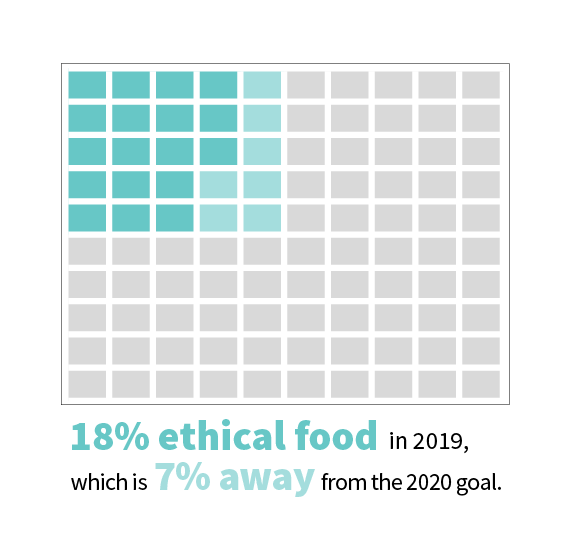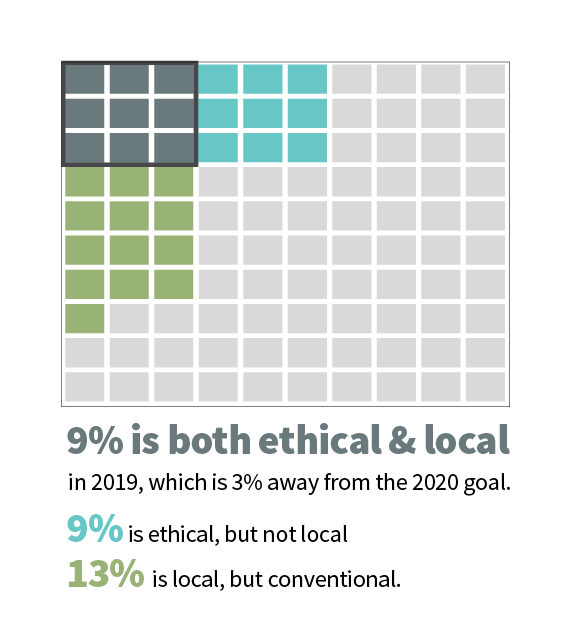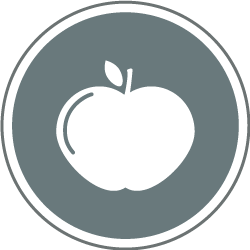
Washington University in St. Louis’ goal is to foster a food system that advances environmental and public health while supporting a strong local economy.
2015 Strategic Plan for Sustainable Operations
WashU Dining Services and its main contracted providers, Bon Appetit, Flik, Kaldi’s, and Catering St. Louis, are working to increase the sourcing of local, environmentally preferable, humane, and fair food, while maintaining transparency and accountability in our food system.
Through making changes to its purchasing, food preparation, and educational efforts, the university hopes to provide direct access to food that is healthy for its community members and the world around them.
Objectives & Progress
Local Food | Achieved
WashU is committed to supporting a strong local economy by purchasing food that is grown, processed, or prepared within 200 miles of campus. In 2019, 22% of WashU’s spending on food and beverages is local, achieving the goal set in the 2015 Strategic Plan for Sustainable Operations.
Among the food you can find on campus, all the milk, all the coffee, and most of the ground beef are sourced locally. Most fruits and veggies that are in season are also locally grown!
Ethical Food | In Progress
By leveraging WashU’s large buying power and prioritizing food that is ethically sourced, we have the ability to influence and improve our food system. In 2019, 18% of the food served at WashU is either environmentally preferable, humane, or fair. For instance, all of our seafood purchase are guided by the Monterey Bay Aquarium Seafood Watch program, eggs and ground beef are certified humane, and most of the coffee exceed fair trade standards.
Local and Ethical Food | In Progress
The most sustainable food is the one that is both locally sourced and responsibly produced. In 2019, nearly 9% of the food served on campus fits this category. The main contributors are Kaldi’s coffee, which is locally roasted and exceeds fair trade practices through the Relationship Coffee program, as well as our local ground beef coming from Raincrow ranch, which is grassfed certified. In addition, the Farm to Fork program requires that all locally crafted products, including baked goods, have a minimum of 50% of the product’s ingredients that is responsibly sourced as verified by a third-party organization.
Highlights
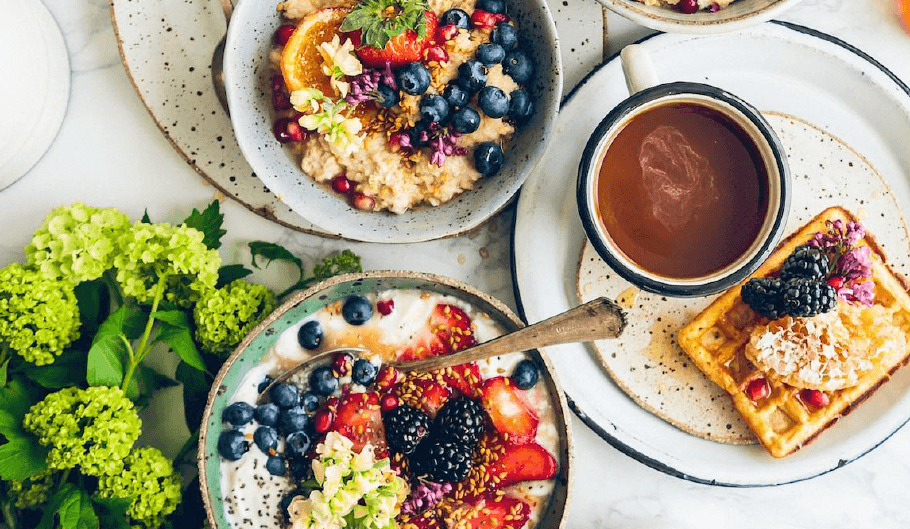
Plant-Rich Diets
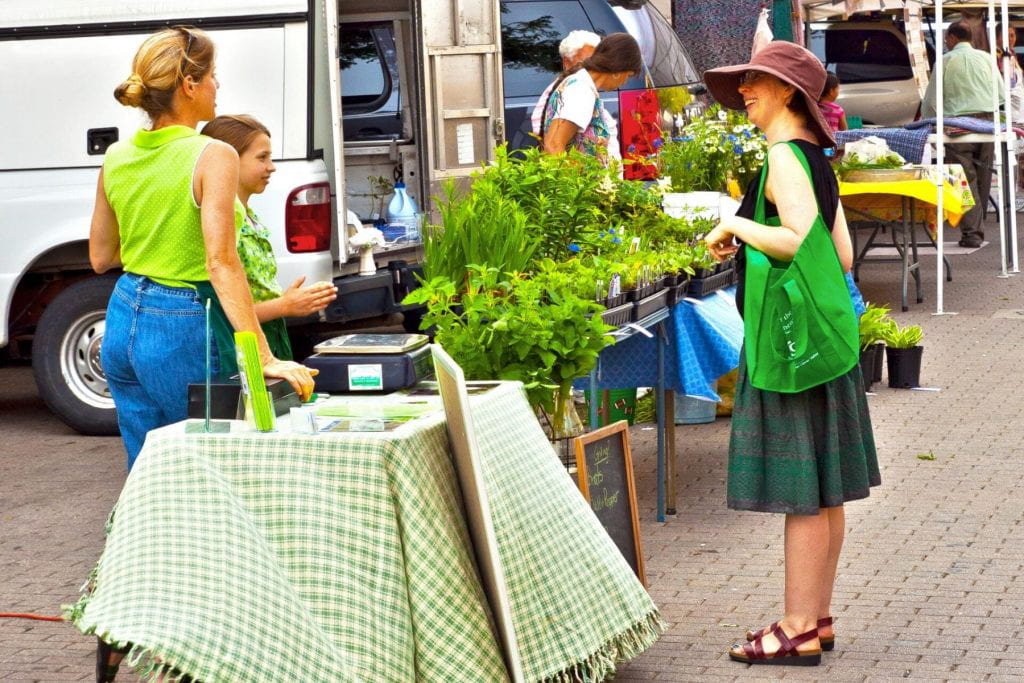
Local Economies
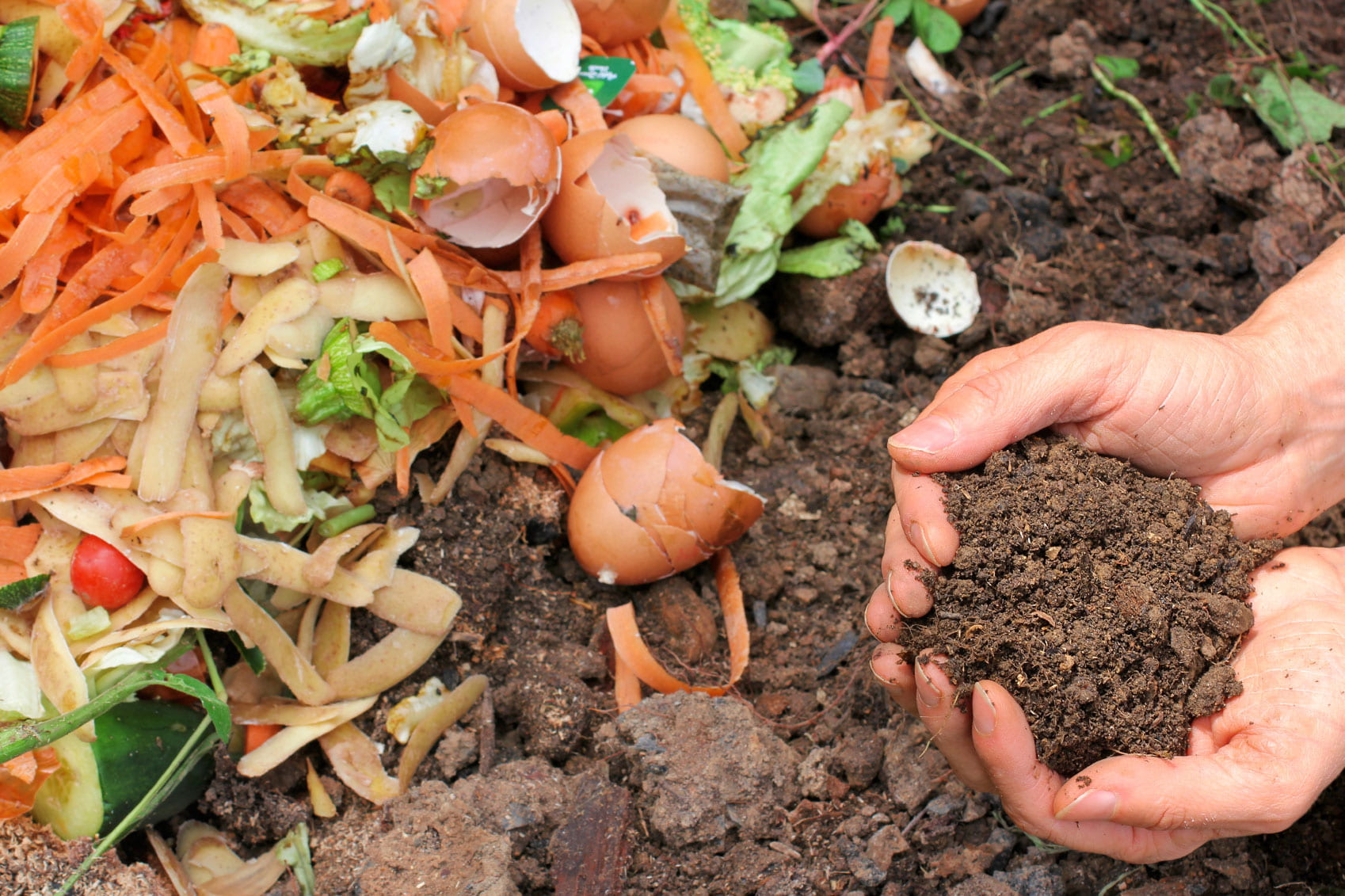
Food Waste
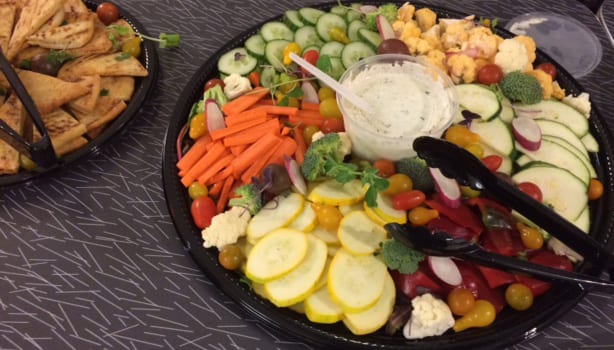
Food Sourcing
Food & Dining Partners
We would like to acknowledge and thank our campus partners who are instrumental in implementing and carrying forward the vision displayed on this page. The partners listed below have and continue to be committed to achieving the goals for sustainable dining on the WashU campuses.

